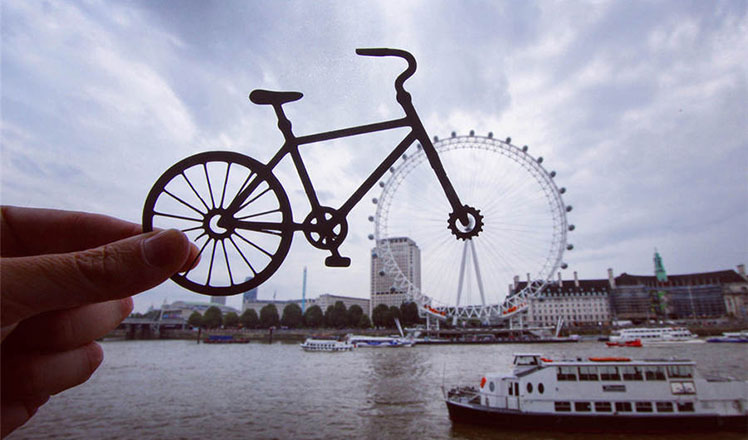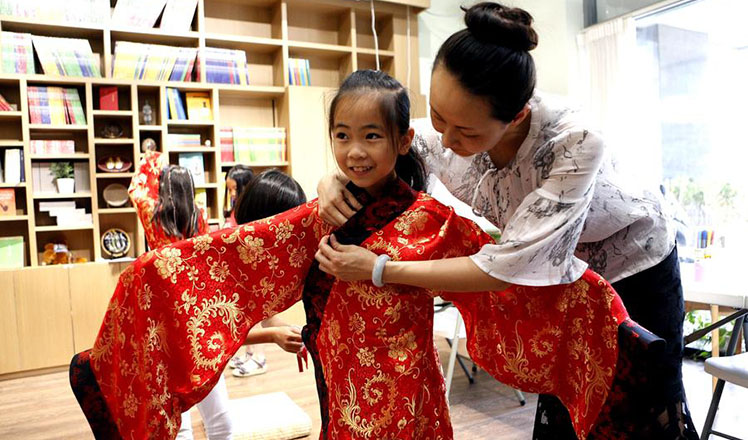POWER IN OUR HANDS
Updated: 2016-07-09 02:36
By Karl Wilson(China Daily USA)
|
|||||||||
“The smartphone has become the gateway between you and the world.”
The technology website Venture-Beat said that each sensor opens the door to new possibilities.
“Chemists at the Massachusetts Institute of Technology recently developed a smartphone sensor that detects when food has gone bad,” the website said.
“Imagine using your phone to check if the rotisserie chicken you brought home three days ago is still safe?”
The article went on to explain that sensors collect raw data that make our phones more aware, and putting that data to use requires machine learning.
“By searching for patterns in the data, intelligent apps can figure out whether you are tall or short and even guess at gender. It may sound spooky at first, but not so when you consider how useful apps will become.”
The most intelligent apps will use sensor-based data to provide contextual information.
Fitness apps, such as Fitbit, track how fast and how far you are walking or running. And many apps such as OpenTable for reserving restaurants and Uber for transport use GPS as their main component to serve information based on the user’s location.
Some apps today are even crowd-sourcing sensor data for traffic and weather forecasts.
Tjondronegoro said nobody predicted that smartphones would become smarter and smarter.
“They are no longer just devices used to talk to one another with. They have become the gateway to virtually everything we do.
“They tell us when to get up, what we are going to do, who we are going to meet, how to get to places, they entertain and inform, they have replaced wallets and the list goes on and on. Even in health they are becoming indispensable.”
According to Marcel Fenez, president of the Hong Kong consultancy Fenez Media, the consumer will think “smartphone first and last for every aspect of his or her life”.
“Every consumer activity will be supplementary to smartphone communications. If we think of any critical aspect of our lives, whether it be health or simply getting from point A to point B, it will be facilitated by smartphone technology.” Fenez said location-based services are key to the new mobile world.
“So much of this is already in place, and over the next few years the kinks in those services such as consumer concerns over intrusiveness, privacy and trust will be resolved so that adoption becomes universal.”
On a macro level, Fenez believes that a strong smartphone ecosystem is key for urban planners at all levels in their quest to be the “smart cities” of the future, “with government services and security systems access already interlinked”.
On a day-to-day basis, Fenez observed that for many people health is already being monitored through wearable technology that checks vital signs to provide warnings to medical workers and reminds them to take medication.
Meanwhile, the ground has already been cleared for the widespread adoption of digital wallets, for third-party payments and peer-to-peer transfers.
“Smartphone commerce and all banking services are already central to so many areas of economic growth,” Fenez said.
Online games and video content have also been growing exponentially in terms of use and revenues. But they are still a long way from peaking.
The concept of a “digital home gateway” has long been promoted as a key access point for all communications entering domestic premises: Delivering telecoms, data and video to homes via a single set-top box, modem or router, Fenez said.
Tjondronegoro said the rise of the Internet of Things, a network of physical objects linked through online connectivity and big data, has given “all of us an incredible insight into everything we do in our daily lives”.
“This is leading to self-quantification technologies that will enable us to not only better manage our health but our daily lives as well.
“What started out as a concept has now become a movement, and our smartphone will be at the center of it,” he said.
The tech magazine Wired said the self-quantification trend of monitoring exercise and daily routines will evolve beyond physical health to “encompass all aspects of people’s daily lives, including time spent at work”.
“Just as individual consumers have embraced wellness self-quantification data, including minutes spent moving and calories consumed, employees will embrace technologies, such as people analytics, at work to better inform individual and team performance trends.”
The magazine said that data gleaned through feedback and people analytics technologies will provide “unprecedented insights around workplace habits, including time spent on e-mail, collaborating with others, walking to meetings and even chatting with coworkers”.
- Eid al-Fitr celebrated worldwide
- Swedish PM looking at tightening laws after festival sex attacks
- British PM race cut to 3 hopefuls as 2 contenders exit contest
- Chinese herbalists offer free US treatment
- Obama praises Hillary's judgement hours after FBI's censure
- Rio mayor tells Olympic visitors: 'Don't expect New York or London'

 Griezmann scores twice to lift France into Euro final
Griezmann scores twice to lift France into Euro final
 Life goes on in flooded Wuhan
Life goes on in flooded Wuhan
 Paper cutouts offer a new view of world landmarks
Paper cutouts offer a new view of world landmarks
 Animals occupy Shanghai
Animals occupy Shanghai
 Beijing Muslims mark end of Ramadan
Beijing Muslims mark end of Ramadan
 Remember emerging heroes in China's floods
Remember emerging heroes in China's floods
 Ronaldo powers Portugal into Euro 2016 final
Ronaldo powers Portugal into Euro 2016 final
 Culture Insider: Six things you may not know about Minor Heat
Culture Insider: Six things you may not know about Minor Heat
Most Viewed
Editor's Picks

|

|

|

|

|

|
Today's Top News
Ministry slams US-Korean THAAD deployment
Two police officers shot at protest in Dallas
Abe's blame game reveals his policies failing to get results
Ending wildlife trafficking must be policy priority in Asia
Effects of supply-side reform take time to be seen
Chinese State Councilor Yang Jiechi to meet Kerry
Chinese stocks surge on back of MSCI rumors
Liang avoids jail in shooting death
US Weekly

|

|









